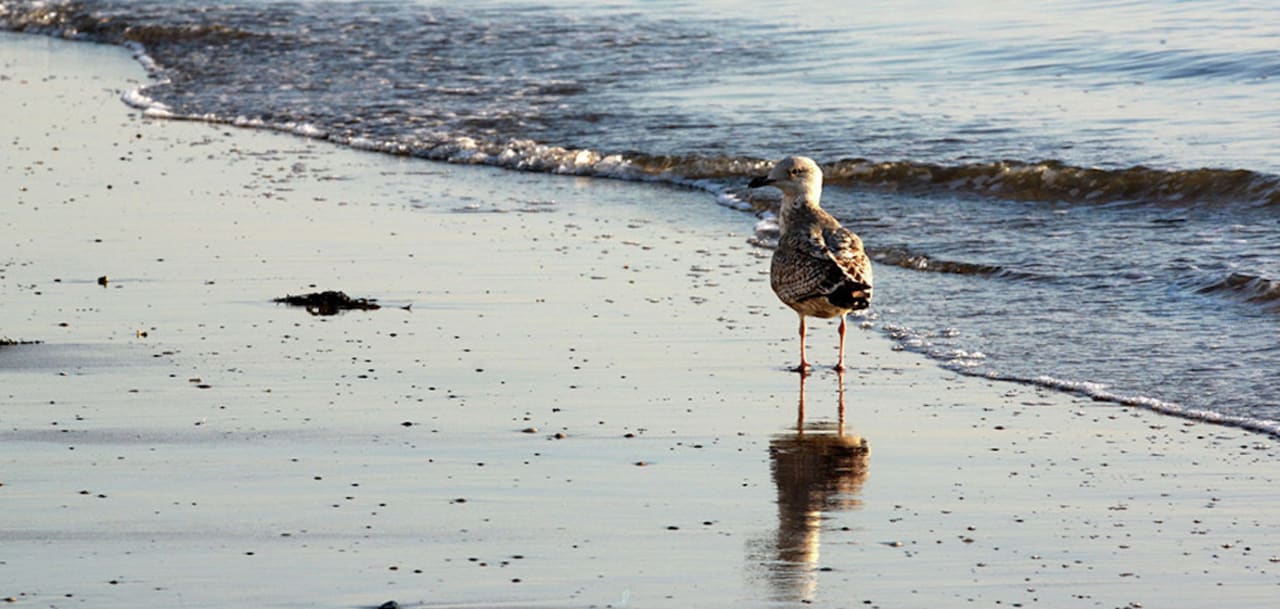
Master of Marine and Lacustrine Science and Management (M.Sc.)
University of Antwerp

Key Information
Select location
Campus location
Antwerp, Belgium
Languages
English
Study format
On-Campus
Duration
2 years
Pace
Full time
Tuition fees
EUR 962 / per year *
Application deadline
Request info
Earliest start date
Mar 2024
* 961.90€ for EEA and non-EEA nationals for 60 ECTS credits; subject to yearly revision
Introduction
The 2-year master programme in Master of Marine and Lacustrine Science and Management (Oceans & Lakes) addresses students with a background in sciences.
Students are provided with strong fundamental and applied knowledge and are prepared for an active role in the scientific research and management of marine and lacustrine systems. The programme adopts a multidisciplinary approach integrating physical, chemical, geological, ecological and societal aspects and including nature conservation and sustainable development.
Oceans & Lakes is an interuniversity programme organised by the Vrije Universiteit Brussel, the University of Antwerp and Universiteit Gent. You can apply for this programme at the Vrije Universiteit Brussel.
Opportunities offered by Oceans & Lakes
- A wide spectrum of disciplines related to marine and lacustrine science and management are covered.
- Since admission is allowed to various science-related bachelor degrees, it may offer a unique opportunity to re-orientate your study career.
- All classes are expertise-based as guaranteed by the large numbers of renowned research groups related to the programme.
- A wide spectrum of thesis subjects will be offered by the various research groups associated with the programme including the NIOZ and UCL (associated as visiting professors).
- You study together with students from all continents providing the global context of future marine and lacustrine research and management.
- The highest standard of education and research is guaranteed by the three universities.
- Classes are organized at all three universities in an efficient way to minimize travelling and maximize acquaintance with existing facilities, research groups and infrastructure.
- Strong focus on practical and fieldwork.
Internship
The internship is a mandatory part of the master programme. The internship of a period of 3-4 weeks allows the student to get professional experience in marine and lacustrine-related fields. In addition to classes, fieldwork is an essential part of the programme.
An internship proposal must be sent via Matix. Students receive a login for Matix at the start of the academic year.
Fieldwork and practicals
Oceans & Lakes is a master programme that provides students with a strong fundamental and applied knowledge and prepares them for an active role in the scientific research and management of marine ecosystems. It thus has a strong focus on practical and fieldwork. Next to lab work, practicals, and short excursions for courses, the programme also offers Integrated Field courses and a Monsoon school.
Quality assurance
The quality of each of the study programmes of the Vrije Universiteit Brussel (coordinating university of the master programme Oceans & Lakes) is closely monitored. The university uses a variety of quality assurance instruments to do that and involves both internal and external interested parties. Based on the results achieved from the various quality assurance instruments, the course councils work continuously on improving the quality of education.
Admissions
Program Outcome
Learning outcomes
- Knowledge in the field of marine and lacustrine studies, advanced knowledge in one of the subdisciplines, and in the interaction of the various subdisciplines within the broader field of application.
- The ability to delineate, recognize and situate biological or geological elements in the context of the scientific domain, in particular in relation to aquatic ecosystems.
- The ability to formulate a relevant research question concerning a complex problem in the field of marine and lacustrine studies, to develop a scientific research approach in conformity to accepted scientific methods, and to bring this approach into practice.
- The ability to formulate hypotheses concerning complex problems in the scientific domain and to evaluate them after a thorough literature study and data collection, to apply advanced knowledge of concepts, models, theories in order to solve concrete problems.
- The ability to assume a responsible role in a multidisciplinary team and, with overarching knowledge and insight, to develop collaboration with various sectors of society including the corporate sector (e.g. the harbour industry, tourism, fisheries, aquaculture).
- Advanced and thorough practical skills in field research, experimental research, research in a laboratory context, and processing data, in order to solve scientific questions.
- Advanced organisational skills in relation to research (teamwork, task division, development, and logistics of a research approach).
- Communicative skills regarding (personal) research results to specialists as well as non-specialists, using various adapted media and formats.
- A critical attitude with respect to the value, reliability, and usefulness of non-self-generated data, with advanced skills in data-mining, analysis of data files, analysis of sources, and literature study.
- The ability to situate scientific problems, results of scientific research, and technical views from an ethical and social perspective.
- The ability to translate scientific views and results into a feasible and realistic management plan or to give an expertise-based contribution to a governance plan in (inter)national perspective.
- The ability to formulate a proposal for a scientific project and to search for the necessary financial resources.
- The ability to function within an international professional environment keeping in mind the values of a multicultural society.
- The ability to situate scientific insight, results of scientific research, and technical achievements in a social perspective, against a political-historical (especially for the development-oriented finality), economical and governance-related background.